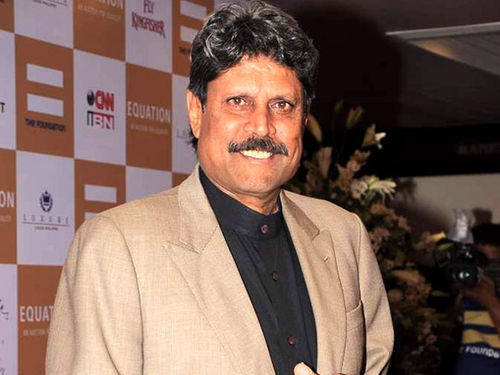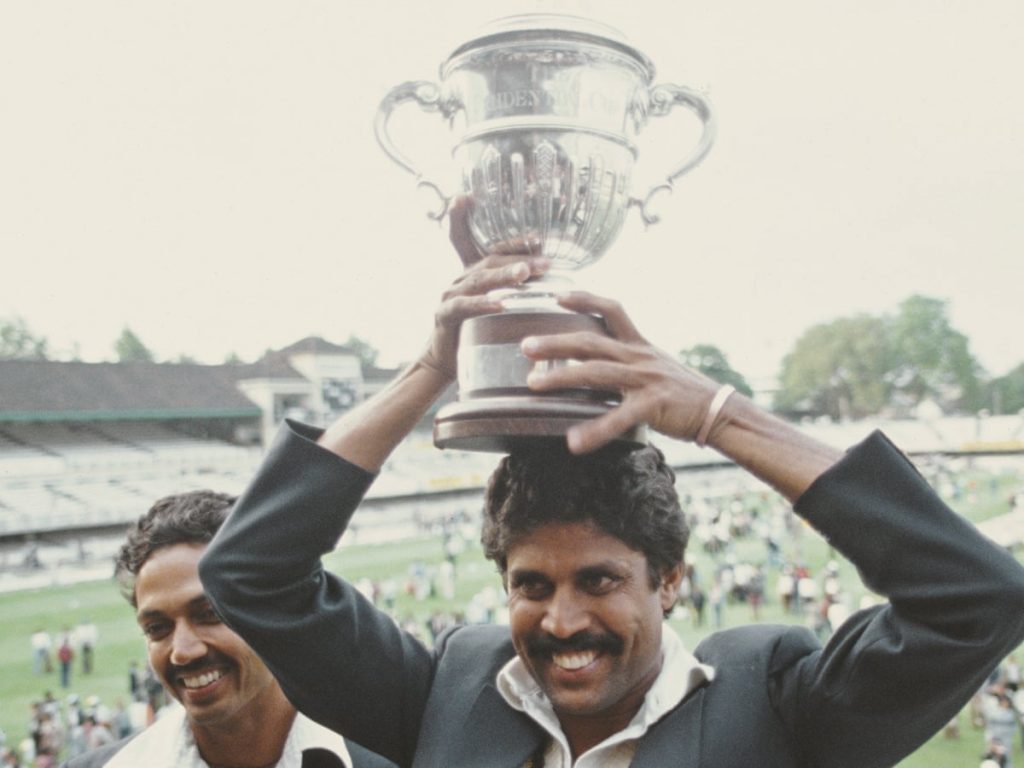
Kapil Dev was born on January 6, 1959,at chandigarh,india to His father Ram Lal nikunj and mother Ram Kumari Ram Lal Nikunj. His father was a lumberjack while his mother was a housewife.He was born in Pakpattan, Pakistanand his father was from Dipalpur, Pakistan. After the separation, the family moved to Chandigarh. Kapil Dev studied at D.A.V. School and in 1971 he joined Desh Prem Azad .In 1980, Kapil Dev married Romi Bhatia. On January 16, 1996, the couple gave birth to Amiya Dev.
Cricket Career:
Kapil Dev played his first match in Cricket with Haryana playing Punjab in November 1975. Haryana won the match and Kapil dev finished the season with 121 wickets in 30 matches.
In the 1976-1977 season, he played against Jammu and Kashmir. Haryana made it to the finals but lost to Bombay in the quarterfinals.
In the 1977-78 season, he played against services and scored 23 wickets in 4 games. Dev has been nominated for the Iran Trophy, Duleep Trophy and Wills Trophy.
In the 1978-79 season, Kapil Dev excelled in the Iran Trophy match where he scored 62 runs at number 8. His performance in the Duleep Trophy finals was much appreciated.
In the 1979-80 season, he won a century (193) against Delhi. He captained Haryana for the first time against Uttar Pradesh and took five wickets to advance to the quarterfinals, but lost to Karnataka.
In the 1990-1991 season Ranji Trophy, Chetan Sharma’s throw and Amarjit Kaypee’s defeat propelled Haryana to the semi-finals against Bengal, with Kapil Dev leading the team scoring 605 points ( Dev got 141 taking 5 wickets).
On October 16, 1978, Kapil Dev made his first cricket match against Pakistan. He took the wallet of Sadiq Mohammad and his trademark outswinger. He is known as an all-rounder player after hitting the fastest Test in India in half a century in just 33 balls in the 3rd Test match at the National Stadium, Karachi. Without his record,
In the series, in Feroz Shah Kotla, Delhi, he hit his first Test Century (126 off 124 balls) against the West Indies and took 17 wickets in 33 runs. In the other series, he took 5 wickets against England, but England won the match. He finished the series with 16 wickets hitting 45 runs. He played his first ODI cricket match on a trip to Pakistan. His performance did not improve and the performance of the Indian team did not improve in the 1979 Cricket World Cup.
In the home series, Dev took 5 wickets against Australia. In this series, he won 28 wickets and 212 runs, including half a century. The series has made him the fastest Indian swimmer. In the 6-Test series against Pakistan, he helped India win at Wankhede Stadium, Bombay (hitting 69 runs) and Chepauk, Madras (Now Chennai), wicket haul -10 in the game (4/90 in the first innings and 7/56 in the second innings and got 84 runs off 98 balls). He set a record while playing the series to become the youngest player to be tested to win a double round of 100 wickets and 1000 runs and 25 wickets.
In 1980-81, during a tour of Australia, despite an injury, Dev played on the final day and India won the match. He also hit his first 50 ODI against New Zealand in Brisbane, Australia.
After an unpleasant journey against Pakistan, Kapil Dev replaced Sunil Gavaskar as Captain of the India Cricket Team.
During his trip to the West Indies, Gavaskar (90) and Dev (72) led India to score 282 points with 2 wickets in just 47 overs. India won the match against the West Indies.
In 1983 in the Cricket World Cup, Yashpal Sharma scored 89 runs and Roger Binny and Ravi Shastri took 3 wickets each. This led to the West Indies losing for the first time to the World Cup. India won the match against Zimbabwe and lost the next two matches against Australia and the West Indies.
On June 18, 1983, at Nevill Ground against Zimbabwe, Dev holds the world record for 27 years. He finished with 126 runs in the 9th wicket. India won the match by 31 runs.
After the World Cup, India hosted the Test series with ODI and West Indies and lost 3-0 and 5-0 respectively. Following this, Gavaskar replaced Dev as captain in 1984.
In March 1985, Kapil Dev was re-elected and India won the Test series against England in 1986. He captained the Indian cricket team at the 1987 World Cup. India advanced to the semi-finals but lost to England. Kapil Dev retired in 1994.
After his resignation as India’s Cricket National coach, Kapil Dev returned to Cricket again as a throwing professional. In October 2006, he was elected chairman of the National Cricket Academy for 2 years.
In May 2007, he joined the Indian Cricket League (ICL) as chairman of the executive board. ICL is sponsored by Zee TV. In June 2007, BCCI withdrew the pensions of all players who joined ICL, including Kapil Dev. On August 21, 2007, Kapil Dev was removed from his position as chairman of the National Cricket Academy. This was a day after he spoke at an official press conference.
As a Coach:
After retiring, Kapil Dev was appointed coach of the Indian National Cricket Team in 1999. During his time as coach, India only won a home test match against New Zealand and saw two consecutive defeats against Australia and South Africa.Manoj Prabhakar accused Kapil Dev of fixing the match, after which he resigned as National coach. The charges against him were dropped later. He is followed by India’s first foreign coach, John Wright, a New Zealand striker.After his resignation as India’s Cricket National coach, Kapil Dev returned to Cricket again as a throwing professional. In October 2006, he was elected chairman of the National Cricket Academy for 2 years.
Records:
Test cricket:
1- In 1994, he broke the record held by Sir Richard Hadlee, becoming the world’s leading Test wicket-taker.kapil dev’s record was broken by courtney walsh in 1999.
2- One player in the world who received 4,000 Test runs twice and 400 test wickets.
3- Multiple innings at work– 184 Not Out.
4-He was the youngest to take 100 wickets (21 years), 200 wickets (24 years) and 300 wickets (27 years old).
5- Only the captain took 9 wickets in the test innings (9/83).
ODI Cricket:
1- Between 1978 and 1994, who won the most wickets in ODI Cricket.
2- On March 22, 1985, the highest score (631), the highest ever achieved after the World Series final against Pakistan in Australia.
3- Top ODI scores hit 6th in World Cup history– 175 Not Out.
4- The number of balls in the ODI inning when you hit sixth place in ODI history.Neil McCallum tied this record in — 138 balls.
Awards/Achievements:

1- Arjuna Award (1979-80).
2- Padma Shri (1982).
3- Wisden Cricketer of the Year (1983).
4- Padma Bhushan (1991).
5- Wisden Indian Cricketer of the Century (2002).
6- ICC Cricket Hall of Fame (2010).
7- The 25 Most Living Stories in India by NDTV (2013).
8- CK Nayudu Lifetime Achievement award (2013).
9- He was honored as a Lieutenant Colonel by the Indian Territorial Army in 2008.
